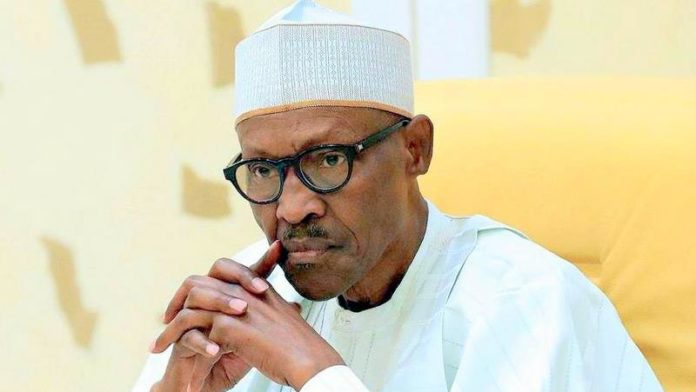By Onyewuchi Ojinnaka (Senior Correspondent)
A non-governmental and advocacy organisation, Socio-Economic Rights and Accountability Project (SERAP), has welcomed the inauguration of the Audit Committee on the Recovery and Management of Stolen Assets established by President Muhammadu Buhari last month as a partial fulfilment of the judgment by Justice Mohammed B. Idris, but requested him (PMB) to use his leadership position to strengthen and extend the mandate of the committee to cover the periods starting from the return of democracy in 1999, as ordered by the court.
The audit committee which has four weeks to submit its report was established to undertake an audit of all recovery accounts established by government agencies.
In an open letter to President Buhari dated December 9, 2017 and signed by SERAP executive director Adetokunbo Mumuni, the organization urged Buhari to strengthen the capacity of the committee, and further extend the four weeks deadline to at least six months within which it is expected to submit its report to so that the committee can effectively document the details of information ordered by Justice Idris.
According to SERAP; “The rule of law might prove to be fragile if its force depends upon the sum of the governmental calculations of costs and benefits made. The kind of commitment needed to nourish the rule of law is a strong political and ethical commitment to obey all judgments of courts in full, and not in part.”
Part of the letter which is made available to TheNiche reads: “Extending the mandates of the committee to cover periods starting from the return of democracy in 1999 could have a profound effect on combating the culture of impunity that prevails wherever corrupt individuals feel that the risk of punishment is low, and that they would be allowed to keep their ill-gotten wealth.”
“Partial implementation of the judgment by Justice Idris would continue to encourage impunity for grand corruption. And the effects of corruption on the rule of law are not only harmful, but destructive to the entire criminal justice system, as well as erode public trust in law and order. We believe that the more transparent and democratic a society is, the more resilient it would be against corruption. And the more corruption is tamed, and recovered stolen assets properly spent on developmental projects, the more Nigeria can thrive among the comity of nations.”

“Detailed terms of reference for the committee have not yet been published. It is also unclear the periods of time covered by the committee’s mandate. These lacunas if not urgently addressed could undermine the effectiveness of the committee, and the integrity and credibility of its work.”
“While we welcome the inauguration of the committee as a partial compliance with the judgment by Justice Idris, we urge your government to fully comply with the terms of the judgment by extending the mandate of the committee to cover the periods starting from the return of democracy in 1999, as well as accessing and collecting information on recovered assets as ordered by the court.”
“We would again like to draw your attention to the judgment delivered in March 2016 by Justice Idris following a Freedom of Information suit no: FHC/IKJ/CS/248/2011 brought by SERAP. The judgment directed your government to provide SERAP with up to date information on recovered stolen funds since the return of civilian rule in 1999, including: Detailed information on the total amount of recovered stolen public assets that have so far been recovered by Nigeria.”
“The details ordered by the court to be disclosed include: information on the total amount of recovered stolen public assets by each government; the amount of recovered stolen public assets spent by each government as well as the objects of such spending and the projects on which such funds were spent.”
“The court noted that successive governments since the return of democracy in 1999 “breached the fundamental principles of transparency and accountability for failing to disclose details about the spending of recovered stolen public funds,” and ordered your government to “ensure accountability for all recovered stolen assets under the governments of former President Olusegun Obasanjo, former President Umaru Musa Yar’Adua, former President Goodluck Jonathan account fully for all recovered loot.”
Consequently, SERAP has through the letter urged President Buhari to renew and strengthen the mandate of the audit committee to cover the periods from the return of democracy in 1999, as ordered by Justice Idris, and extend the four weeks deadline within which the committee is to submit its report to at least 6 months;develop detailed terms of reference for the committee, including the power to access files and interview all persons of interest to the committee from all governments since the return of democracy in 1999.
Furthermore the Organization has implored Buhari to ensure the publication of the report of the committee, and if the report establishes any relevant admissible evidence that some of the recovered assets have been re-stolen, to refer such cases to the appropriate anti-corruption agencies including the Economic and Financial Crimes Commission (EFCC) and the Independent Corrupt Practices and Other Related Offences Commission (ICPC), for further investigation and prosecution; to work with the leadership of the National Assembly to promote and encourage the urgent passage of the Proceeds of Crimes Bill, to ensure sustainability and transparency in the management of assets; and encourage and facilitate civil society participation in the work of the audit committee.













